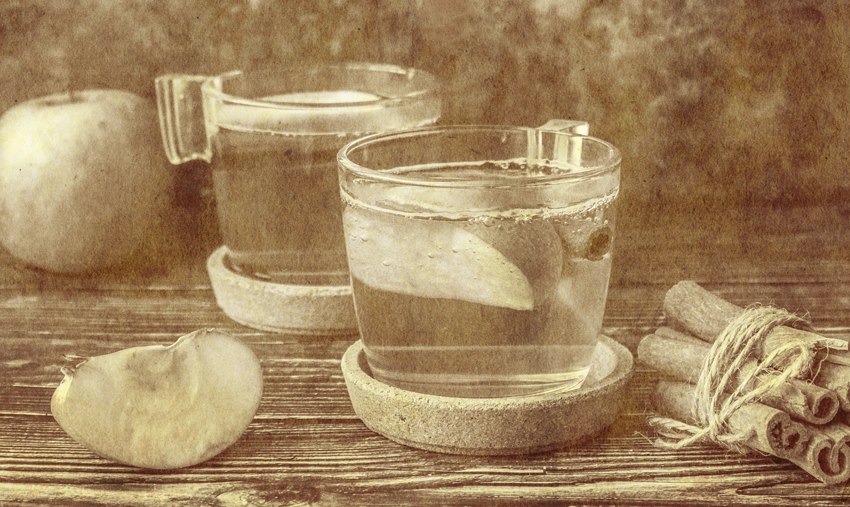When Life Gives You Apples
How the history of cider parallels the history of ... everything else.

President-elect William Henry Harrison must have enjoyed the most satisfying cup of cider to celebrate his win over Democratic incumbent Martin Van Buren in the 1840 election.
During the campaign, Harrison was criticized as being too old (he was 67, which is like 31 in today’s gerontocracy). Smart-aleck editorialist John de Ziska of the Baltimore Republican wrote, “Give him a barrel of hard cider, and settle a pension on him … he will sit the remainder of his days in his log cabin by the side of the fire and study moral philosophy!”
Harrison’s advisors saw the “witty” quote less as an ageist thing, and more as evidence of his (otherwise sketchy) man-of-the-people bona fides. The slogan “Log Cabin and Hard Cider” went straight onto posters and paraphernalia that reached across the country – and it worked. Harrison throttled Van Buren, taking nearly 80 percent of the electoral vote in what is now seen as the first modern election … and setting the stage for his most enduring contribution to the trivia world, dying of pneumonia just 31 days after inauguration.
The history of cider
The 1840 election may have been a high point in American cider awareness, but it was neither the beginning nor the end. In fact, the story of cider in America starts at least a millennium and a half before Christopher Columbus did his (problematic) thing.
Julius Caesar became a fan in 55 BCE, after he found Celtic Britons turning crab apples into fermented apple cider. He loved it so much that he brought it back with him to continental Europe. The Spanish have been making their version of cider—sidra, which, like “cider,” comes from Hebrew through Greek and Latin—for thousands of years. And, after the Northern Conquest of England in 1066, new apple tree varieties were brought over from France, and cider quickly became one of England’s preferred drinks (after ale, of course).
When the European colonists came to America in the 1600s, they made sure to pack their apple seeds. Trees sprouted up all over Colonial America, and cider became a popular beverage – so popular it was used as acceptable payment for wages, taxes, and tithes. Cider demand began to fade when folks abandoned their rural apple orchards during the Industrial Revolution. The arrival of beer-loving immigrants from Ireland and Germany didn’t help (plus grain was cheap in the Midwest), and then came the proverbial nail in the apple cider coffin—Prohibition.
The new wave
As you know if you’ve been anywhere near a bar, restaurant, liquor store, or backyard barbecue lately, hard cider has been making a steady and strong resurgence. And Americans aren’t alone: France is the world’s leading producer, and Britons the leading consumers per capita (and the ones who immortalized it in a chart-topping song). Here are some cider fun facts:
- There are 2,834 cider producers in the U.S. in 2023, up from 13.6% from last year.
- Boomers and millennials account for 69% of cider consumders (nice!) while 20% are Gen-Z – not bad, considering most of Gen Z can’t even buy it yet.
- “Specialty” ciders including spiced, hopped, wood-aged, sour, or iced ciders are adding some pizazz to the cider market
Because cider is fermented without heat, like wine, cideries are more environmentally sustainable than breweries and distilleries … but then, like everything else, climate change itself is already forcing big changes to the industry. Anyway, we’re choosing to view this as proof that drinking hard cider can save the world. Cheers to that!
